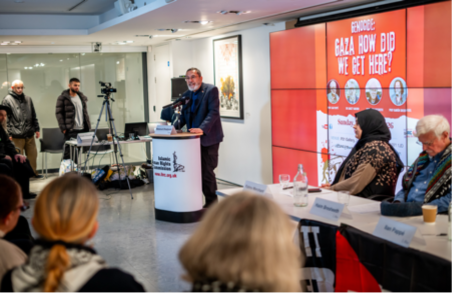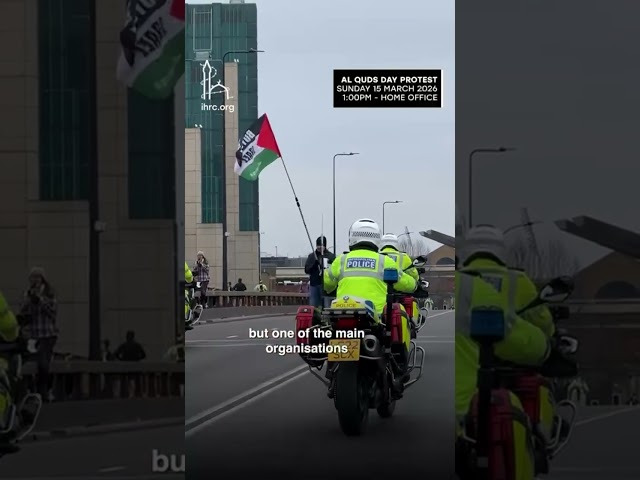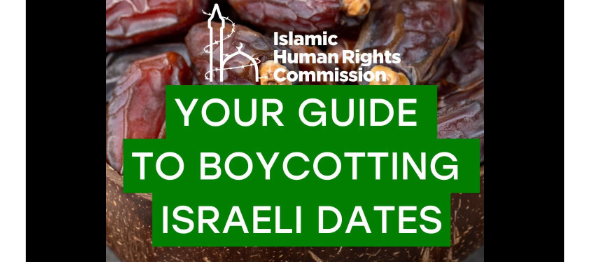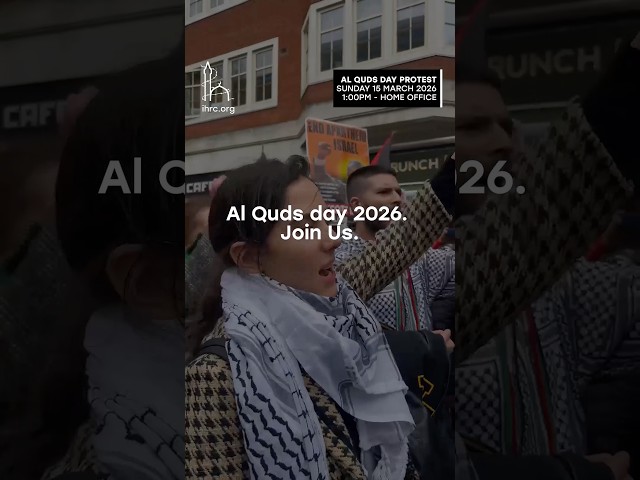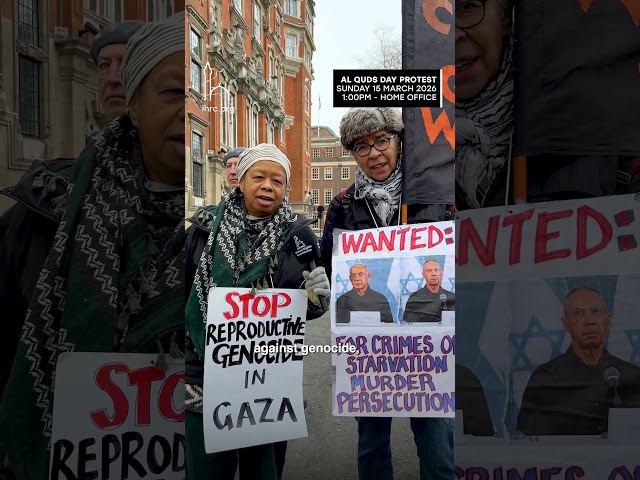Sheikh Ibraheem El-Zakzaky is the leader of the Islamic Movement in Nigeria. This page contains links and summary background to key questions about him, the movement and the IHRC campaigns for him and members of the movement whose rights have been violated. To return to the main campaign page please click here.
Who is Sheikh el-Zakzaky?
What is the Islamic Movement?
What is the current case?
How long has IHRC been working on cases related to Nigeria?
What is happening in Nigeria?
Who is Sheikh el-Zakzaky?
Sheikh Ibraheem El-Zakzaky is the leader of the Islamic Movement of Nigeria. An abridged biography of his life can be found here.
An overview of some of his statements, memoirs about him and his life can be found here.
He is married to Mallimah Zeenah Ibraheem, and their family comprised seven sons, two daughters and a number of adopted children. One of their sons were killed in the 2014 Zaria Massacre when a Nigerian army unit opened fire on peaceful protestors at the Al-Quds day march for Palestine. A further two were killed in detention having been picked up by soldiers on the day. Three more sons and an adopted daughter were killed by Nigerian Security forces during the Zaria Massacre of 2015 when the Sheikh’s house and other Islamic Movement building were targeted. Sheikh El-Zakzaky’s sister was also burned alive during this event. Up to 1000 Islamic Movement members were killed that day.
Read the latest IHRC report to be submitted to the International Criminal Court (2020). Read the original IHRC submission to the International Criminal Court about the Zaria Massacre provides further information on the December 2015 incident.
Watch an IHRC documentary and side panel at the UN provide more information on the Zaria Massacre of 2014.
What is the Islamic Movement?
The Islamic Movement of Nigeria started at the end of the 1970s as a student movement and had developed to encompass an estimated 20 million people across Nigeria. The Funtua Declaration, and address by Sheikh El-Zakzaky in 1980 outlines the beliefs and concerns of what would become the movement. The movement provides medical and education services to many deprived Nigerians. Its leadership have always been deeply critical of various Nigerian regime and governments. It advocates for social, economic and political justice for all Nigerians.
Despite various acts of extreme police and army violence against them, the movement has remained committed to non-violent activism, and draws support and followers from across Nigeria’s various faith and ethnic communities.
In recent years various political actors including the current President and pro-government media have taken to describing the movement as the ‘Shiites’. This narrative seeks to portray the group as a minority religious sect rather than an Islamic movement for change that is non-denominational. More detailed information on the group’s ethnic and religious makeup, it’s background and activities can be found is available on this site here.
Read a short letter from Dr. Nusaibah El Zakzaky on the nature of the movement and the Nigerian government’s attempts to distort the narrative.
What is the current case?
Sheikh and Mallimah were detained without trial from December 2015, the courts in Nigeria demanded their release in 2016, however the government continued to detain them. In 2018 the government brought charges against Sheikh. These charges claim that as a result of alleged unlawful assembly by the Sheikh, Nigerian security conducted the military spree against the Sheikh and his followers, therefore the Sheikh is culpable in the deaths. These are clearly mendacious charges.
How long has IHRC been working on cases related to Nigeria?
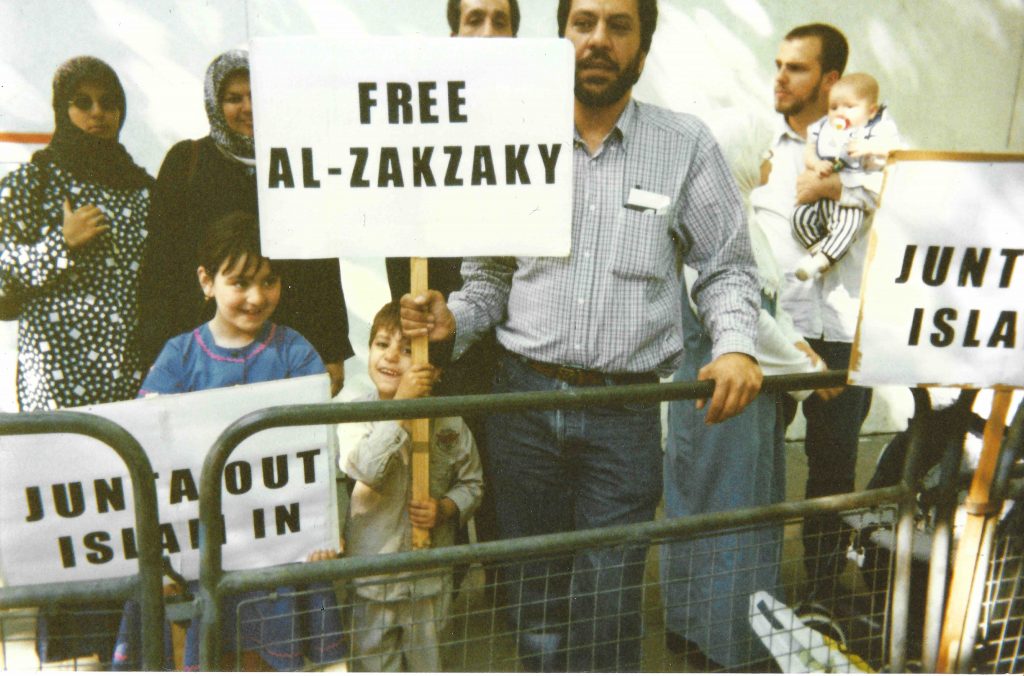
One of the campaigns that came together to form IHRC in 1997 was the Free Zakzaky campaign that was working on campaigning for the release of Sheikh El-Zakzaky and just over 1000 members of the Islamic movement who were detained without charge from 1996 – 1999 under the regime of Sani Abacha.
IHRC has been involved in various cases resulting from the attacks on the Islamic Movement by Nigerian authorities since that time. Sheikh El-Zakzaky has also worked on various Universal Justice Network projects trying to foster conflict resolution amongst Muslim groups around the world, bringing to bear his vast experience as the leader of a non-violent, non-sectarian movement.
You can find out more by searching our website. Some of our early reports and campaign material for Sheikh El-Zakzaky and the movement can be found here, here and here.
We are currently campaigning for his and Mallimah’s release as well as all those unjustly detained by the Nigerian authorities from the Islamic movement.
We are also fundraising for the medical expenses of those injured by Nigerian army and police brutality in the above and related incidents. To donate please visit this page.
To follow this campaign, please bookmark the Campaign Page and find out all the latest information and actions.
What is happening in Nigeria
Despite transitioning to a civilian administration almost two decades ago, Nigeria has sustained issues around political corruption and instability, alongside massive social inequality. Activist Ayesha Yusefu in this 15 minute video highlights some of the wider frustrations and concerns.


